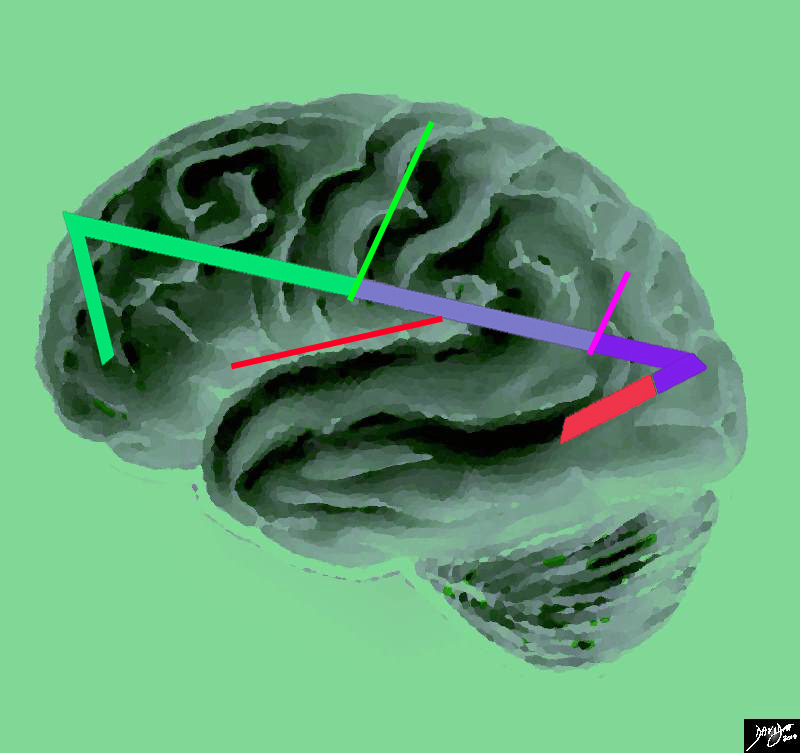The Common Vein Copyright 2010
Introduction
A fissure or sulcus is a natural division, deep furrow, or a groove that separates the gyri of the brain.
The main groove of the brain is the interhemispheric fissure which divides the brain into two halves.
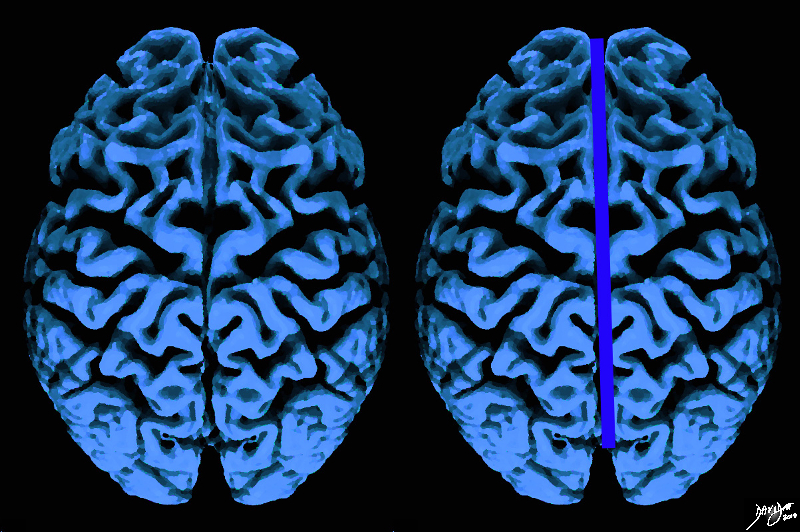
Interhemispheric Fissure |
|
When the external surface is explored from above a fissure divides the oval of the brain into two hemisphere. The deep cleft is called the interhemishpheric fissure In additionthe serpiginous folds and crevices that characterize the outside surface of the brain start to become apparent as one explores the shape of the brain. It is obvious that it is more than a mere oval. Courtesy Ashley Davidoff MD 52981b05.8.44kb03b01c02.8s 52981b05.8.44kb01c02.8s |
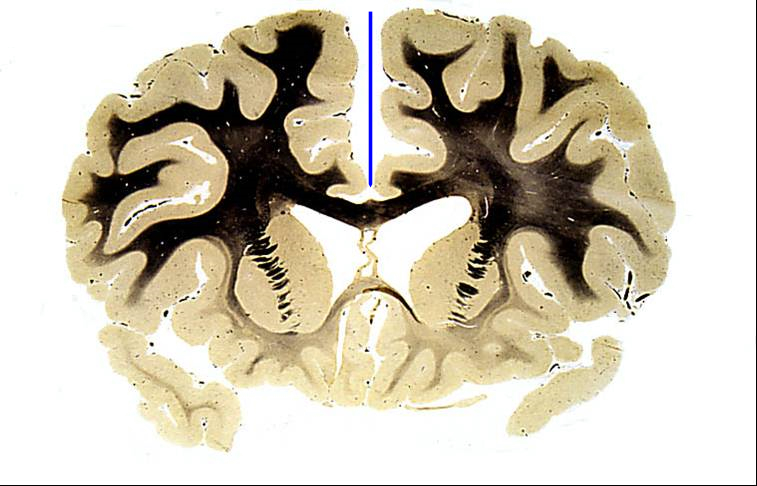
The Interhemispheric Fissure in Coronal – Runs Deep |
|
The coronal section of a normal anatomic section of the brain shows the interhemispheric fissure (blue line) and in particular the depth to which it extends into the brain. Courtesy Elisa Flower MD Department of Radiology Boston Medical Center and Courtesy of Department Anatomy Boston University School of Medicine 97104b02 |
A starting point in the axial projection is the central sulcus which is usually recognized by its relatively central position and it divides the cerebral hemispheres by defining the frontal lobe and the parietal lobe.
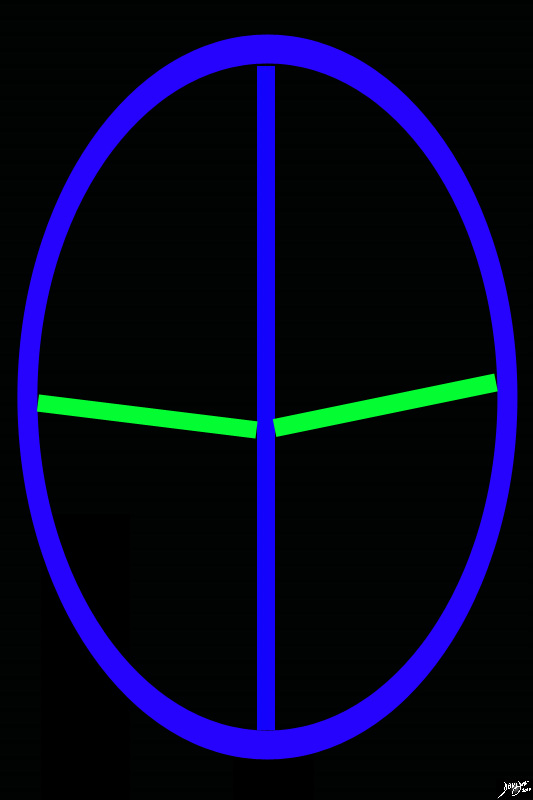
Basic Starting Point of the Fissures and Sulci Interhemispheric Fissure and Central Sulcus |
|
The diagram reflects the interhemispheric fissure as depicted in the axial plane dividing the brain into two halves. At the surface of the brain it is a division of the forebrain into the two cerbral hemisphres. By convention anterior is on the top and posterior on the bottom, while the patients right is to our left and vice versa for the patients left brain Copyright 2010 Courtesy Ash;ley Davidoff MD 93914.83s |
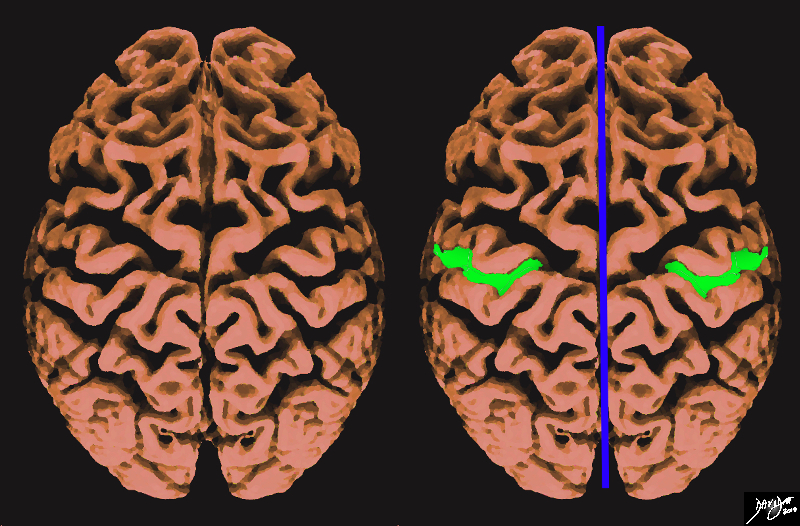
Central Sulcus – The Big Divide in the Coronal Plane |
|
When the external surface is explored from above a fissure divides the oval of the brain into two hemisphere. The deep cleft is called the interhemishpheric fissure In additionthe serpiginous folds and crevices that characterize the outside surface of the barin start to become apparrent as one explores the shape of the brain. It is obvious that it is more than a mere oval. From this vantage point the frontal lobe and parietal lobe are visible and are separated by the central sulcus (green) brain anatomy Courtesy Ashley Davidoff copyright 2010 52981b05.8.44kb03b01c03.8s |
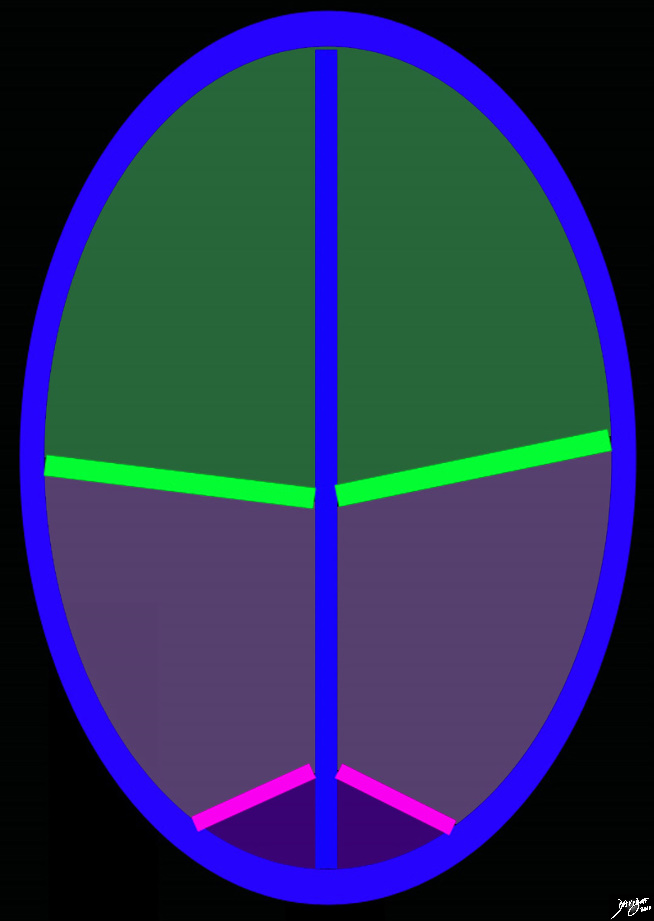
The Small Divide Defining the occipital Lobes and Posterior Border of the PArietal Lobes |
|
The diagram reflects the interhemispheric fissure as depicted in the axial plane dividing the brain into two halves. The bright green line represents the central sulcus which separates the the frontal lobes (green) from the parietal lobes (light purple. The parito-occipital fissure (pink) separates the parietal lobes from the occipital lobes. By convention anterior is on the top and posterior on the bottom, while the patients right is to our left and vice versa for the patients left Courtesy Ashley Davidoff MD 93914.85sb |

Central Sulcus; Let the Gyri Begin |
|
The diagram of the brain as viewed from above shows the interhemispheric fissure, and the central sulcus (lime green) which divides tyhe brain into the frontal lobe anteriorly and the parietal lobe posteriorly. The presentral gyrus, (blue) is the motor gyrus and is a landmark posterior border of the frontal lobe. The post central gyrus (pink) is the sensory gyrus and is the landmark anterior border of the parietal lobe. Courtesy Ashley Davidoff Art Copyright 2010 All rights reserved 52981b05.8.44kb01c06.9c |
Sulci in the Sagittal Plane
|
Sulci in The Sagittal Plane |
|
This artistic rendition of the brain reflects the vectors of the major parts of the brain revealing the major border forming fissures and sulci. The central sulcus (bright green line) divides the frontal lobe from the parietal lobe (light mauve). The region of the parieto-occipital fissure (pink line) divides the parietal lobe from the occipital lobe (purple). and the Sylvian fissure (thin red line)divides the temporal lobe from the frontal and parietal lobe Courtesy Ashley Davidoff copyright 2010 all rights reserved 83029e04.87s |
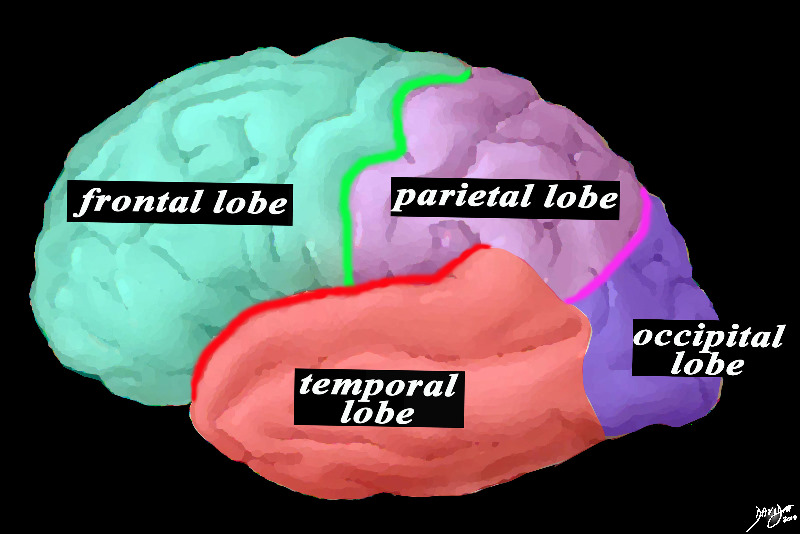
The Side Divide |
|
This is a diagram looking at the forebrain from the side showing the anteriorly placed frontal lobe, separated from the inferiorly placed temporal lobe by the Sylvian fissure (red), and separated from the parietal lobe by the central sulcus (green). The parietal lobe is also separated from the temporal lobe by the Sylvian fissure and from the occipital lobe by the parieto-occipital fissure (pink). Courtesy Ashley DAvidoff MD copyright 2010 83029d13b01.8s |

